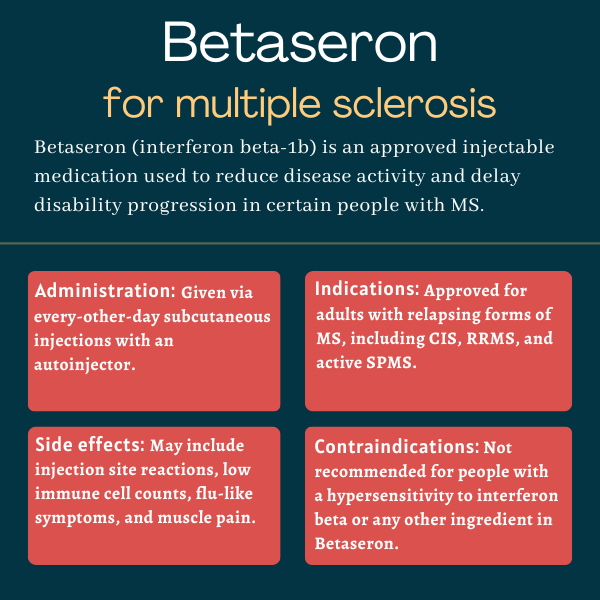
FAQs about Betaseron
Betaseron was the first disease-modifying therapy to be approved by the U.S. Food and Drug Administration for multiple sclerosis (MS). It was first approved in 1993 for relapsing-remitting MS, and its label was later expanded to include clinically isolated syndrome in 2006, and active secondary progressive MS in 2019.
Most observational studies that tracked the outcomes of pregnancies exposed to interferon beta therapies, including Betaseron, did not identify an increased risk of adverse pregnancy outcomes or major birth defects. If clinically needed, Betaseron may be considered during pregnancy, but patients who are or plan to become pregnant should always discuss the benefits and risks with their healthcare providers.
There are no studies reporting an interaction between Betaseron and alcohol. However, alcohol has the potential to cause liver damage, which is also a known side effect of Betaseron, so it should be used with caution while taking this medication. Patients should always discuss safe alcohol use with their healthcare providers.
Because multiple sclerosis presents differently in each individual and responses to treatment vary, it is difficult to determine a standard timeline for when Betaseron starts to work. Patients are advised to talk with their healthcare team about how the medication may help in their specific case.
Both hair loss and weight gain have been reported in clinical trials as potential side effects of Betaseron. Patients should talk with their healthcare team if they experience these or other new symptoms while on the medication.
 Fact-checked by
Fact-checked by 


